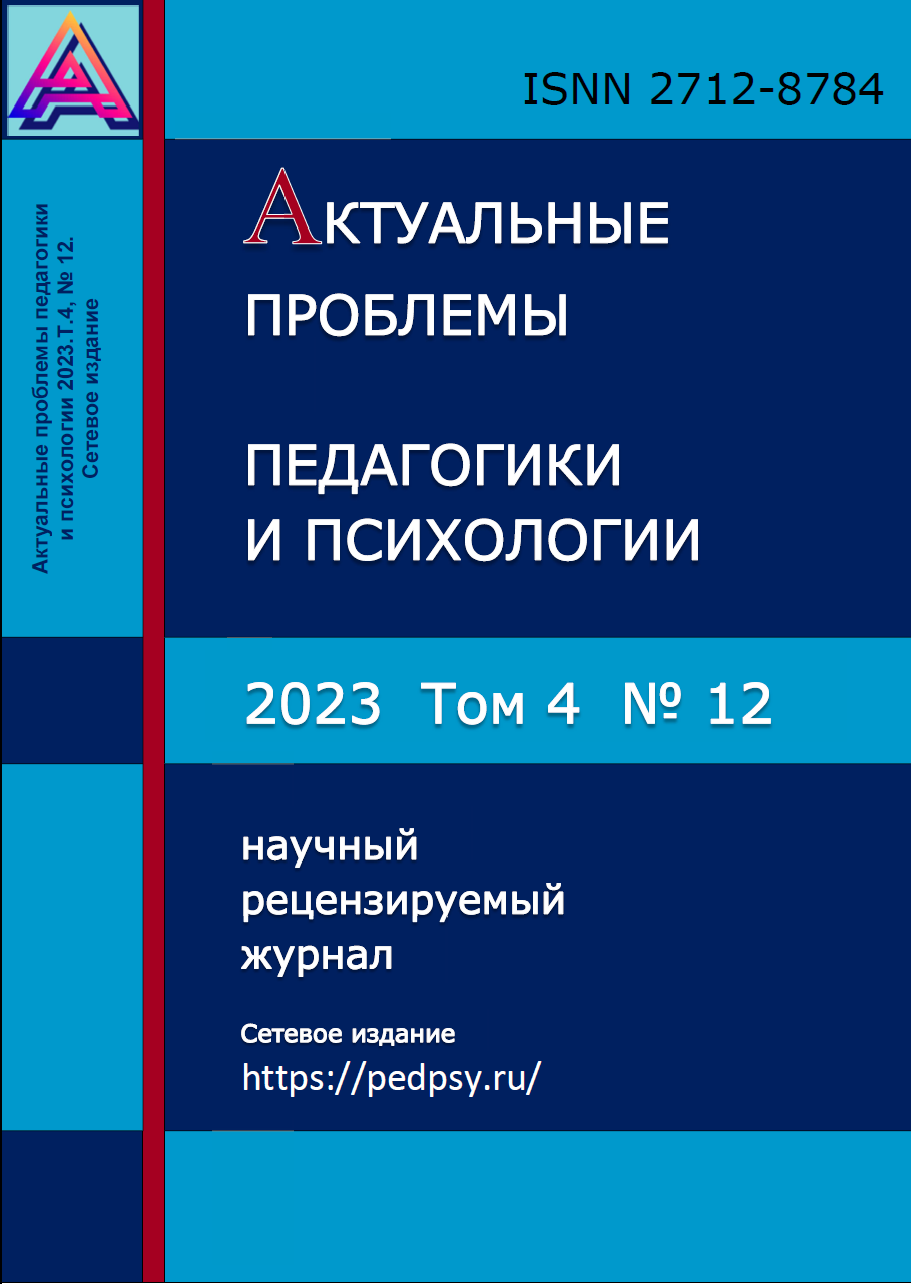IDENTIFICATION AND ALIENATION IN THE EXPERIENCE OF GRIEF
Keywords:
psychological alienation, alienation, identification, grief experience, grief, grieving, stages of grieving, normal grief, pathological griefAbstract
The experience of grief is a topic that is relevant for a person who is inherently emotional, in any social system, in any era. In our opinion, two psychological processes play an important role in an effective way out of a state of grief - identification and alienation. Identification can be carried out in relation to oneself, former, present or future, in relation to other people, near or far, in relation to a reference social group. Psychological alienation in a situation of experiencing grief can occur from other people, from society, specific social groups, from the world as a whole, up to self-alienation. The purpose of our work is to study the peculiarities of the interaction of two psychological processes, identification and alienation, during the experience of grief. The research methods are the analysis of the scientific literature published over the past 5 years on the topic, as well as the synthesis of the information obtained during the analysis in a definite answer to the question we posed about the interaction of identification and alienation in human grief. As a result of our research, we can note that the processes of psychological alienation and identification accompany any process of experiencing grief, permeating all stages of grieving. Moreover, what is worth paying attention to, the movement goes from alienation to identification. But not every identification allows a person to cope with grief. Positive identification with the real world, real people, helps to overcome the state of grief. Negative identification keeps a person in a state of pathological grief - with a person who has died. The movement towards positive identification goes through the transformation of the value-semantic sphere of a person, through the formation of a new self, who has gone through the experience of death, integrated a new understanding of the world into his personality, and managed to find the strength to stay alive.
References
Енькова Л.П. Горевание и сиротство / Л.П. Енькова // International Journal of Medicine and Psychology. 2023. Т. 6. № 5. С. 225-232.
Ковалевская А.А. Психологические особенности переживания горя и утраты / А.А. Ковалевская // Гуманитарные науки. 2020. № 1 (49). С. 130-136.
Крамаренко Н.С., Рябова Н.Г. Социальные сети и поддержка женщин, переживающих утрату супруга / Н.С. Крамаренко, Н.Г. Рябова // Вестник Московского государственного областного университета. 2023. № 1. С. 123-139.
Литинская Д.Г., Кононова А.А., Купчинов Р.Ю. Потеря субъектности при переживании горя: женщина в мужском платье / Д.Г. Литинская, А.А. Кононова, Р.Ю. Купчинов // Артикульт. 2019. № 4 (36). С. 134-143.
Магомед-Эминов М.Ш. Возвращение самоидентичности личности при горе: авторский постмодернистский подход / М.Ш. Магомед-Эминов // Развитие личности. 2009. № 1. С. 110–120.
Маркман Е.В. Использование метода нарративной терапии в работе с перинатальными утратами / Е.В. Маркман // Acta eruditorum. 2022. № 42. С. 78-81.
Мухина В.С. Личность: Мифы и Реальность (Альтернативный взгляд. Системный подход. Инновационные аспекты). – Екатеринбург, 2007.
Поддубная Е.А., Положенкова Е.Ю. Психологическая помощь при переживании горя / Е.А. Поддубная, Е.Ю. Положенкова // Тенденции развития науки и образования. 2020. № 62-20. С. 42-46.
Сирота Н.А., Видерман Н.С., Ялтонский В.М. Психологические аспекты горевания / Н.А. Сирота, Н.С. Видерман, В.М. Ялтонский // Паллиативная медицина и реабилитация. 2022. № 1. С. 42-48.
Downloads
Published
How to Cite
Issue
Section
License
Copyright (c) 2023 Мария Китаева

This work is licensed under a Creative Commons Attribution-NonCommercial 4.0 International License.
Availability of publications based on the Creative Commons license
The journals Materials of international conferences and "Actual Problems of Pedagogy and Psychology" are open access journals, which means that all content is freely available to the user or his/her institution for free. Users can read, download, copy, distribute, print, search or link to the full texts of articles or use them for any other legitimate purposes without the prior permission of the publisher or author.
Copyright is reserved for the author without restrictions, the license applies to readers and the publisher.
Availability of publications based on the Creative Commons license
Attribution-Non-Commercial 4.0 International (CC BY-NC 4.0)
This is a human-readable summary of (and not a substitute for) the license. Disclaimer.
You are free to:
- Share — copy and redistribute the material in any medium or format
- Adapt — remix, transform, and build upon the material
- The licensor cannot revoke these freedoms as long as you follow the license terms.
Under the following terms:
- «Attribution» — You must give appropriate credit, provide a link to the license, and indicate if changes were made. You may do so in any reasonable manner, but not in any way that suggests the licensor endorses you or your use.
- Non-Commercial — You may not use the material for commercial purposes.
- No additional restrictions — You may not apply legal terms or technological measures that legally restrict others from doing anything the license permits.
Notices:
- You do not have to comply with the license for elements of the material in the public domain or where your use is permitted by an applicable exception or limitation.
- No warranties are given. The license may not give you all the permissions necessary for your intended use. For example, other rights such as publicity, privacy, or moral rights may limit how you use the material.



.jpg)

.jpg)
